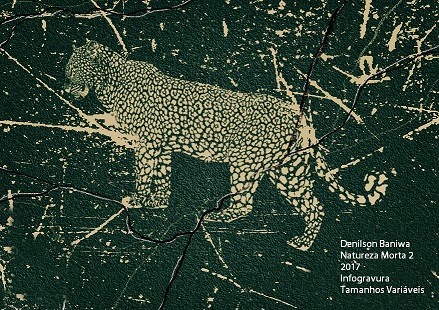The Animal Eye and Refugee Vulnerability in Wajdi Mouawad’s Anima
DOI:
https://doi.org/10.54103/2035-7680/16800Keywords:
Animality; Trauma; Memory; Vulnerability; Performing Arts; DiasporaAbstract
Anima, by Lebanese-born Canadian-raised author Wajdi Mouawad, is a road novel that takes the reader through different locations on the North American continent in order to explore the darkest side of humankind. This approach will focus on the provocative narrative technique used by Mouawad, filtered through the eyes of a significant number of animals and insects, in order to consider the different representations of vulnerability that articulate the text. In the novel, animals and insects are not only the narrators but also fundamental characters. As this analysis will show, their vulnerability represents the uncertainty of fate in contemporary society, being in the hands of those apparently superior creatures that decide when they can live and when they have to die. As an example of a vulnerable text, Anima relies on the theatricality of this animal Greek chorus to represent the need for humans to undergo a process of animalization. The protagonist, Wahhch Debch, reaches a stage of symbiosis with his animal side that allows him to transcend his vulnerability as a child refugee and as an adult who lost his wife, and this new sense of animal self serves him as an empowering element to break ties with his past.
Downloads
References
Asma, Stephen T. On Monsters. An Unnatural History of Our Worst Fears. Oxford University Press, 2009.
Baker, Timothy C. Writing Animals. Language, Suffering, and Animality in Twenty-First-Century Fiction. Palgrave, 2019.
Blanco, Sergio. Mirada sensible y Contemporaneidad. Masterclass sobre la construcción de la percepción del espectador en el mundo contemporáneo. MICA, 2017, https://www.youtube.com/watch?v=gUubX_raO0A. Accessed 10 Dec 2019.
---. Autoficción. Una ingeniería del yo. Punto de vista, 2018.
Blanco, Sergio, Gabriel Calderón and Santiago Sanguinetti. Animalia. Criatura, 2018.
Boltanski, Luc. Distant Suffering. Morality, Media, and Politics. Translated by Graham Burchell. Cambridge University Press, 2004 (1993).
Butler, Judith. Frames of War. When Is Life Grievable? Verso, 2009.
Butler, Judith, Zeynep Gambetti and Leticia Sabsay. “Introduction.” Vulnerability in Resistance, edited by Judith Butler, et al. Duke University Press, 2016, pp. 1-11.
Caruth, Cathy. Trauma: Explorations in Memory. Johns Hopkins UP, 1995.
---. Unclaimed Experience: Trauma, Narrative and History. Johns Hopkins University Press, 1996.
Casas, Ana. El yo fabulado. Nuevas aproximaciones críticas a la autoficción. Iberoamericana-Veuvert, 2014.
Cohen, Jeffrey Jerome. Monster Theory. Reading Culture. U of Minnesota P, 1996.
Connell, Raewyn. Gender and Power: Society, the Person and Sexual Politics. Allen & Unwin, 1987.
---. Masculinities. Allen & Unwin, 1995.
Derrida, Jacques. The Animal That Therefore I Am. Translated by David Willis. Fordham University Press, 2008 (2006).
Doubrovsky, Serge. Fils. Éditions Gallimard, 1977.
Gallien, Claire. “Refugee Literature: What postcolonial theory has to say.” Journal of Postcolonial Writing, vol. 54, no. 6, 2018, pp. 721-26.
Ganteau, Jean-Michel. The Ethics and Aesthetics of Vulnerability in Contemporary British Fiction. Routledge, 2015.
---, Jean-Michel and Susana Onega. “Performing the Void: Liminality and the Ethics of Form in Contemporary Trauma Narratives.” Contemporary Trauma Narratives. Liminality and the Ethics of Form, edited by Susana Onega and Jean-Michel Ganteau. Routledge, 2014, pp. 1-18.
González Maestro, Jesús. Crítica de la razón literaria. Crítica de la Razón literaria. El Materialismo Filosófico como Teoría, Crítica y Dialéctica de la Literatura. Editorial Academia del Hispanismo, 2017.
Hirsch, Joshua. Afterimage. Film, Trauma, and the Holocaust. Temple University Press, 2004.
Hirsch, Marianne. Family Frames: Photography, Narrative, and Postmemory. Harvard University Press, 1997.
Huggan, Graham and Helen Tiffin. Postcolonial Ecocriticism. Literature, Animals, Environment. Routledge, 2015 (2010).
Laub, Dori and Daniel Podell. “Art and Trauma.” International Journal of Psycho-Analysis, vol. 76, no. 5, 1995, pp. 991-1005.
Messerschmidt, James W. “Men Victimizing Men: The Case of Lynching, 1865-1900.” Masculinities and Violence, edited by Lee H. Bowker. Sage, 1998, pp. 125-49.
Mouawad, Wajdi. Anima. Translated by Linda Gaboriau. Talonbooks, 2017 (2012).
Ohren, Dominik and Roman Bartosch. Beyond the Human-Animal Divide. Creaturely Lives in Literature and Culture. Palgrave, 2017.
Pavis, Patrice. Dictionnaire du théâtre. Armand Colin, 2019 (1996).
Pyke, Susan Mary. Animal Visions. Posthumanist Dream Writing. Palgrave, 2019.
Rothberg, Michael. Multidirectional Memory. Remembering the Holocaust in the Age of Decolonization. Stanford University Press, 2009.
Scott, Niall. Monsters and the Monstrous. Myths and Metaphors of Enduring Evil. Rodopi, 2007.
Tal, Kalí. Words of Hurt. Reading the Literatures of Trauma. Cambridge University Press, 1996.
Wajcman, Gérard. El ojo absolute (translated by Irene Agoff). Manantial, 2011.
Wesling, Donald. Animal Perception and Literary Language. Palgrave, 2019.
Downloads
Published
How to Cite
Issue
Section
License

This work is licensed under a Creative Commons Attribution-NonCommercial-NoDerivatives 3.0 Unported License.




